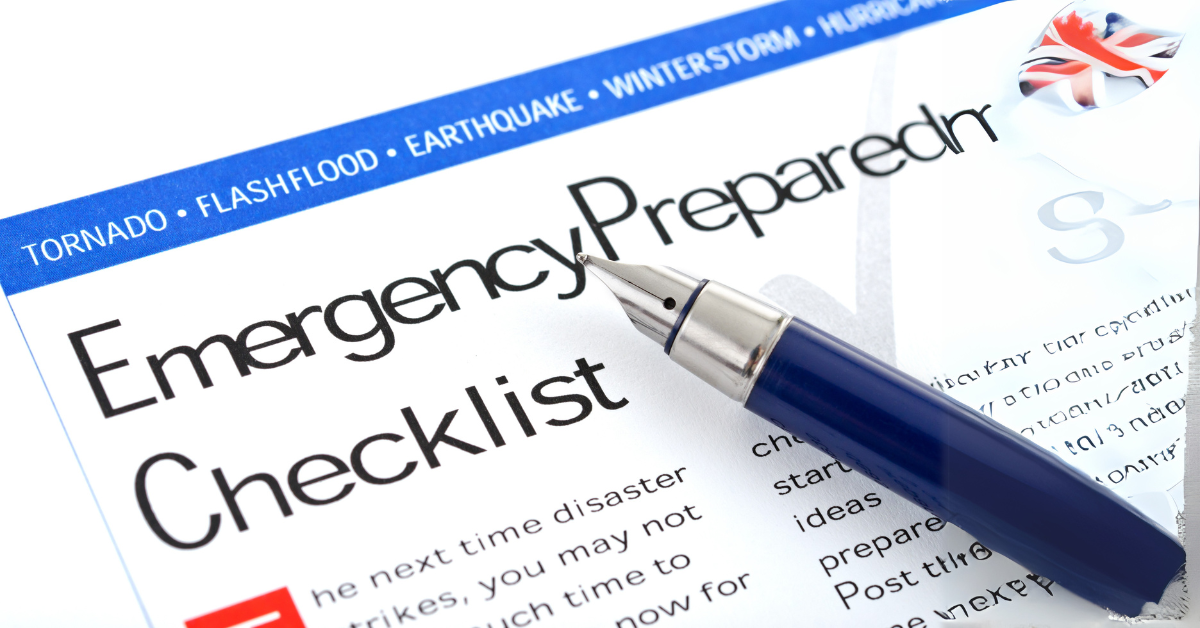Beginner

Level 1 Award in Introduction to Emergency Preparedness and Response
Level 1 Award in Introduction to Emergency Preparedness and ResponseCourse OverviewThe Level 1 Award in Introduction to Emergency Preparedness and Response is a foundational qualification designed to introduce individuals to the principles and practices of emergency preparedness and response. This award provides essential knowledge on how to prepare for emergencies, respond effectively, and understand the key roles and responsibilities in an emergency situation. Ideal for those new to the field or working in entry-level safety and emergency roles, this course ensures that learners are equipped with the fundamental skills needed to contribute to emergency preparedness in their organizations or communities.Benefits
Study Units
- Understand the basics of emergency preparedness and response.
- Learn how to identify potential hazards and risks in an organization or community.
- Gain the knowledge to respond effectively to emergencies and support response teams.
- Familiarize yourself with emergency protocols and procedures.
- Build a solid foundation for further qualifications in emergency management or health and safety.
- Understand the importance of emergency preparedness and response.
- Identify common types of emergencies and their potential impact.
- Understand the roles and responsibilities of key personnel in an emergency situation.
- Describe emergency response procedures and how to follow them.
- Recognize the key components of an emergency plan.
- Understand how to contribute to the preparation and implementation of emergency procedures in the workplace or community.
| Unit Title | GLH | TQT | Credit | Assessment Type |
| Introduction to Emergency Preparedness | 4 | 6 | 0.5 | MCQ |
| Types of Emergencies | 4 | 6 | 0.5 | MCQ |
| Roles and Responsibilities in an Emergency | 5 | 8 | 1 | MCQ |
| Emergency Procedures and Protocols | 4 | 6 | 0.5 | MCQ |
| Creating and Implementing an Emergency Plan | 4 | 7 | 1 | MCQ |
| First Aid and Basic Emergency Response | 4 | 7 | 0.5 | MCQ |
- Introduction to Emergency Preparedness
- Defining emergency preparedness and response.
- The importance of being prepared for emergencies in various settings (e.g., workplace, home, public spaces).
- Key elements of emergency preparedness: risk assessment, planning, training, and communication.
- Types of Emergencies
- Identifying different types of emergencies, including natural disasters, industrial accidents, medical emergencies, and fires.
- Understanding the potential impacts of each type of emergency on individuals, organizations, and communities.
- Risk factors and common hazards in various environments.
- Roles and Responsibilities in an Emergency
- Understanding the roles of emergency responders (e.g., fire services, first aiders, safety officers).
- The role of employees and managers in emergency preparedness and response.
- The importance of teamwork and coordination during an emergency situation.
- Emergency Procedures and Protocols
- Overview of emergency procedures, such as evacuation plans, fire drills, and first aid response.
- The importance of clear and concise communication in emergency situations.
- Steps to follow during an emergency: assessing the situation, taking action, and ensuring safety.
- Creating and Implementing an Emergency Plan
- Key components of an emergency plan: emergency contacts, evacuation routes, and first aid provisions.
- How to contribute to developing, reviewing, and updating emergency plans.
- Training and educating others on emergency procedures and protocols.
- First Aid and Basic Emergency Response
- Basic principles of first aid and how to provide immediate support in an emergency.
- Key first aid skills: CPR, wound care, and choking procedures.
- When and how to seek professional medical help in an emergency situation.
- Individuals new to emergency preparedness roles or health and safety positions.
- Employees, managers, or volunteers who may be responsible for implementing or supporting emergency plans.
- Anyone seeking to understand the basic principles of emergency preparedness and response in their personal or professional life.
- Organizations wishing to train staff in emergency procedures to ensure workplace safety.
- Move on to further qualifications in emergency management, health and safety, or first aid.
- Apply for entry-level roles in health and safety, emergency response, or risk management.
- Participate in or lead emergency preparedness initiatives within their organizations or communities.
- Expert-Led Learning: Gain knowledge from instructors experienced in emergency response, health, and safety.
- Practical Learning: Learn through real-world examples, case studies, and scenarios to apply emergency response principles.
- Foundational Qualification: Build a strong foundation for a career in emergency preparedness, health and safety, or risk management.
- Flexible Learning Options: Study through various formats, including classroom-based training or online learning, to fit your schedule.
Qualification Title: Level 1 Award in Introduction to Emergency Preparedness and Response
Level: 1
Type: Award
Total Qualification Time (TQT): 40 hours
Guided Learning Hours (GLH): 25 hours
Credit Value: 4 credits
Assessment Method: Multiple Choice Questions (MCQ)
Grading: Pass/Fail
Delivery Mode: Classroom / Online / Blended
Study Units Breakdown
| Unit Title | GLH | TQT | Credit | Assessment Type |
| Introduction to Emergency Preparedness | 4 | 6 | 0.5 | MCQ |
| Types of Emergencies | 4 | 6 | 0.5 | MCQ |
| Roles and Responsibilities in an Emergency | 5 | 8 | 1 | MCQ |
| Emergency Procedures and Protocols | 4 | 6 | 0.5 | MCQ |
| Creating and Implementing an Emergency Plan | 4 | 7 | 1 | MCQ |
| First Aid and Basic Emergency Response | 4 | 7 | 0.5 | MCQ |
Upon completing this award, learners will be able to:
- Understand the importance of emergency preparedness and response.
- Identify common types of emergencies and their potential impact.
- Understand the roles and responsibilities of key personnel in an emergency situation.
- Describe emergency response procedures and how to follow them.
- Recognize the key components of an emergency plan.
- Understand how to contribute to the preparation and implementation of emergency procedures in the workplace or community.
This award is ideal for:
- Individuals new to emergency preparedness roles or health and safety positions.
- Employees, managers, or volunteers who may be responsible for implementing or supporting emergency plans.
- Anyone seeking to understand the basic principles of emergency preparedness and response in their personal or professional life.
- Organizations wishing to train staff in emergency procedures to ensure workplace safety.
Assessment Type: MCQ-based
Top Courses
No results found.
Related Courses
Let's Get in touch
Deleting Course Review
Are you sure? You can't restore this back
Course Access
This course is password protected. To access it please enter your password below:



